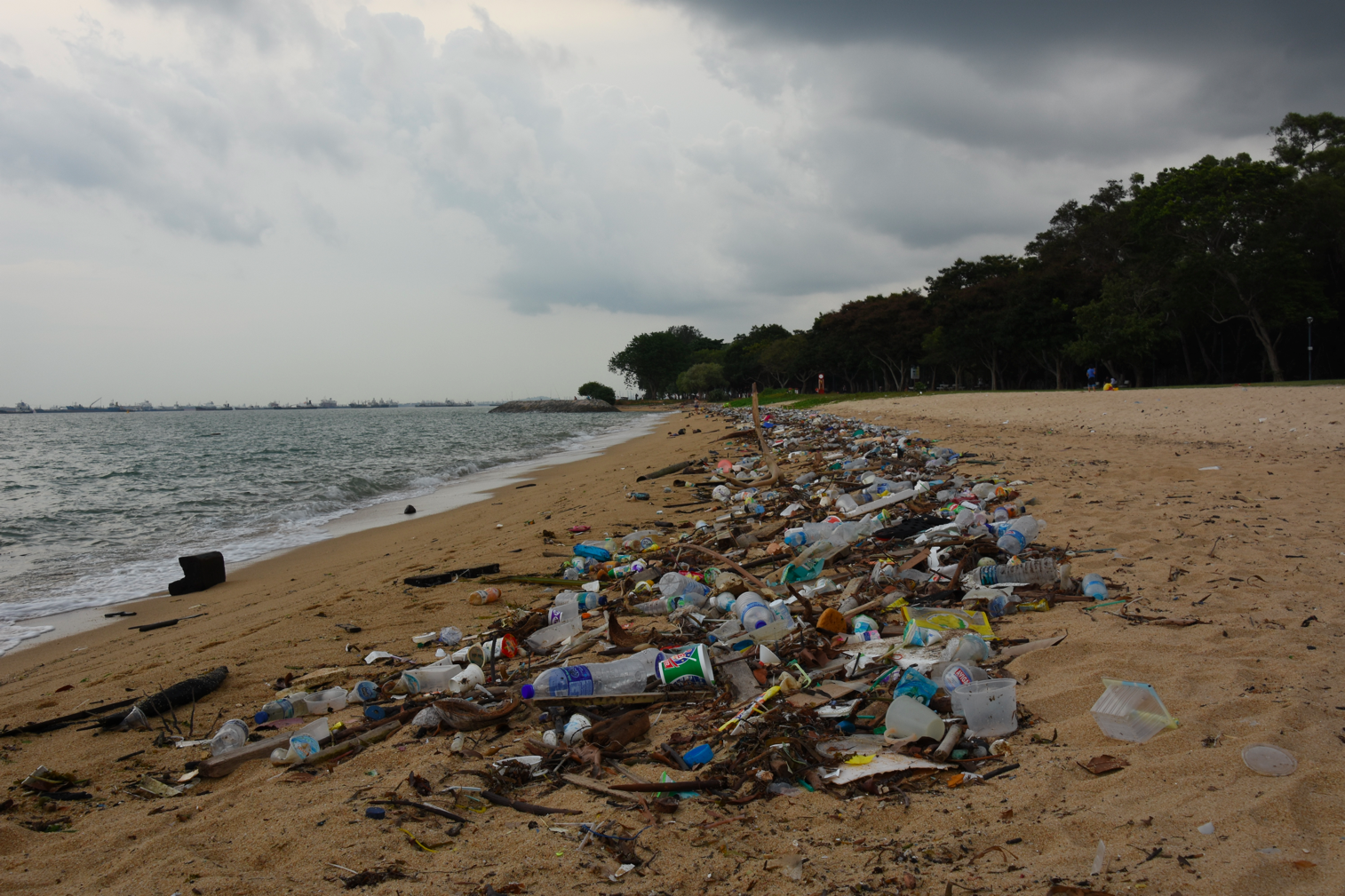Our Ocean, Our Future, Our Waste

There are over 150 million metric tons of plastic in our oceans and each year we add an additional 8 million tons—that’s about a truckload a minute, according to the World Economic Forum. At these rates, by 2050 there will be more plastic in our ocean by weight than fish. For last year’s World Ocean’s Day, we focused on reducing our plastic pollution. This year, we are looking at changing the way we consume plastics, among other material goods.
 Every year we lose 32% of packaging to the environment. The plastic fragments that end up in the ocean are deadly to marine creatures, from plankton to seabirds, who mistake them for food and there are further troubling signs as to what the nanoparticles from these plastics can do as they make their way up the food chain and become part of our diets.The Ocean Cleanup Project can remove half the great pacific patch in 5 years by using huge floating screens directed by natural currents to collect the plastic—but what if we could stop the trash from ending up there in the first place? What if we could stop turning plastics into trash?
Every year we lose 32% of packaging to the environment. The plastic fragments that end up in the ocean are deadly to marine creatures, from plankton to seabirds, who mistake them for food and there are further troubling signs as to what the nanoparticles from these plastics can do as they make their way up the food chain and become part of our diets.The Ocean Cleanup Project can remove half the great pacific patch in 5 years by using huge floating screens directed by natural currents to collect the plastic—but what if we could stop the trash from ending up there in the first place? What if we could stop turning plastics into trash?
That’s what organizations like the Ellen MacArthur Foundation are focusing on. This year, in a joint venture with the Prince Wales International Sustainability Unit, the Ellen MacArthur Foundation is holding a 2 million dollar design competition to keep plastics out of the ocean. The two part competition will promote innovative design solutions based on circular economics, with the goal of eliminating disposable packaging and designing packaging that is easier to recycle or can be composted.
Circular economics is an innovative approach to plastic production and use. Today, 95% of plastic packaging material is lost to the economy after a short first-use cycle, costing $80 to $120 billion each year. With circular economics, the New Plastics Economy can turn after-use plastics back into valuable feedstock. This approach provides an opportunity to enhance the system’s effectiveness, reducing demands on finite raw material and saving $40 billion annually.
 Speaking of her experience sailing around the world, Ellen MacArthur explains that what you bring with you on the boat is what you need for survival, so you have to manage all of your resources and their depletion. “You realize finite resources are exactly the same on a boat as they are within our global economy. And yet we’re using them up.”
Speaking of her experience sailing around the world, Ellen MacArthur explains that what you bring with you on the boat is what you need for survival, so you have to manage all of your resources and their depletion. “You realize finite resources are exactly the same on a boat as they are within our global economy. And yet we’re using them up.”
Our ocean is a vital natural system, crucial to sustaining a healthy planet. This year, the overall theme for World Oceans is our ocean, our future. In addition to reducing plastic pollution, let’s think of ways we can reuse. Together we can change the way we consume, and protect our ocean. Visit the World Ocean’s Day website to find more ways to get involved.



